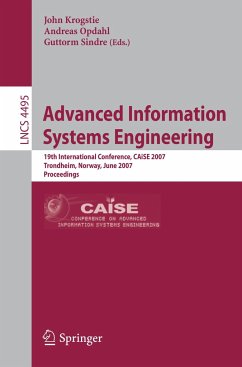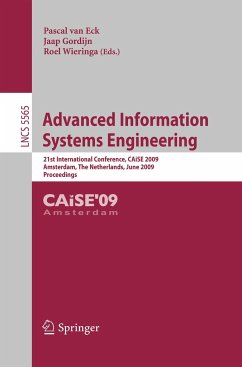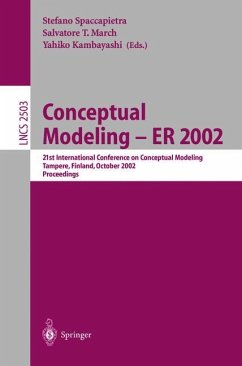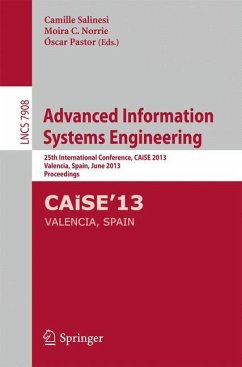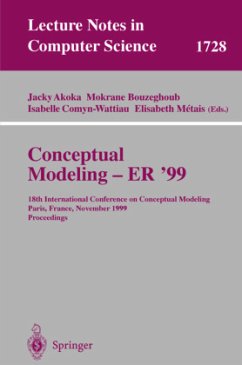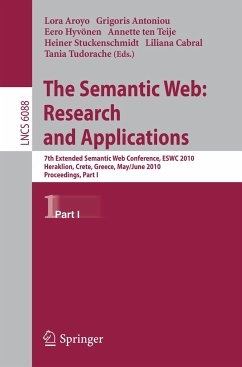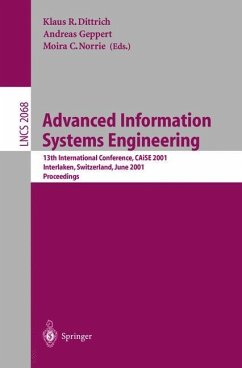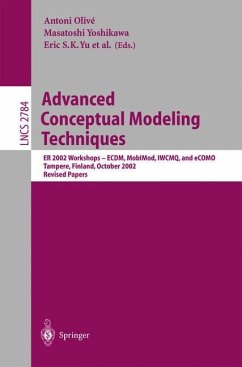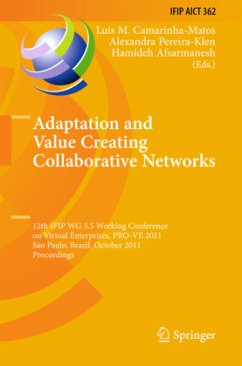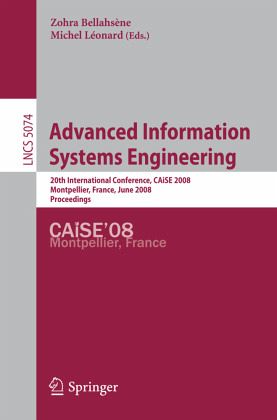
Advanced Information Systems Engineering
20th International Conference, CAiSE 2008 Montpellier, France, June 18-20, 2008, Proceedings
Herausgegeben: Bellahsène, Zohra; Léonard, Michel

PAYBACK Punkte
38 °P sammeln!
This book constitutes the refereed proceedings of the 20th International Conference on Advanced Information Systems Engineering, CAiSE 2008, held in Montpellier, France, in June 2008.
The 35 revised full papers and 9 revised short papers presented together with 1 keynote lecture were carefully reviewed and selected from 273 submissions. The papers are organized in topical sections on duality and process modelling, interoperability of IS and enterprises, refactoring, information systems in e-government and life-science, knowledge patterns for IS engineering, requirements engineering for IS, conceptual schema modelling, service infrastructure, service evolution, flexible information technologies, metrics and process modelling, information system engineering, and IS development with ubiquitous technologies.
The 35 revised full papers and 9 revised short papers presented together with 1 keynote lecture were carefully reviewed and selected from 273 submissions. The papers are organized in topical sections on duality and process modelling, interoperability of IS and enterprises, refactoring, information systems in e-government and life-science, knowledge patterns for IS engineering, requirements engineering for IS, conceptual schema modelling, service infrastructure, service evolution, flexible information technologies, metrics and process modelling, information system engineering, and IS development with ubiquitous technologies.
CAiSE 2008wasthe20thinthe seriesofInternationalConferencesonAdvanced Information System Engineering. This edition continued the success of previous conferences, a success largely due to that fact that, since its ?rst edition, this series has evolvedin parallelwith the evolutionofthe importance ofinformation systems in economic development. CAiSE has been able to follow, and often to anticipate, important changes that have occurred since 1978 when the ?rst CAiSE conference was organized by Arne Sølvberg and Janis Bubenko. In all these years, modern businesses and IT systems have been facing an ever more complex environment characterized by openness, variety and change. Furthermore, enterprises are experiencing ever more variety in their business in many dimensions. In the same way, the explosion of information technologies is overwhelming with a multitude of languages, platforms, devices, standards and products. Thus enterprises need to manage an environment to monitor the interplay ofchanges in the business processes, in information technologies, and at the ontological level, in order to achieve a sustainable development of their information systems. Enterprises must enter the era of sustainable information systems to face the important developmental challenges. During all these years, CAiSE researchers have been challenged by all these changes,andtheCAiSEconferencesprovideaforumforpresentinganddebating important scienti?c results. In fact, CAiSE is positioned at the core of these tumultuousprocesses,hostingnewemergingideas,fosteringinnovativeprocesses of design and evaluation, developing new information technologies adapted to information systems, creating new kinds of models, but always being subject to rigorous scienti?c selection.



